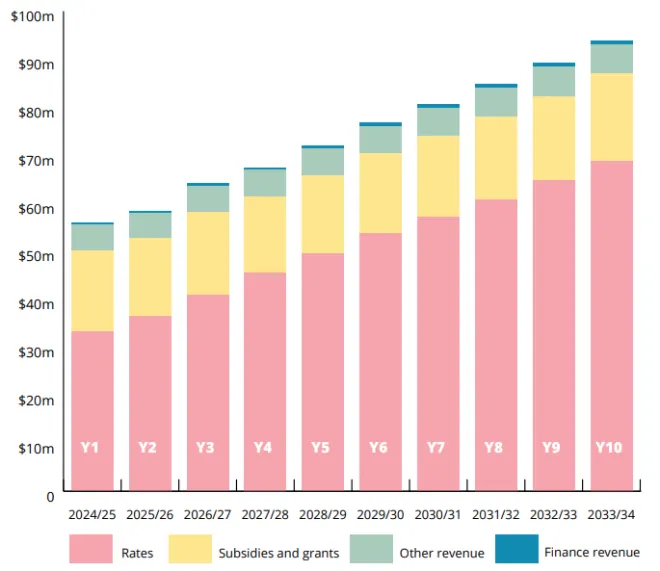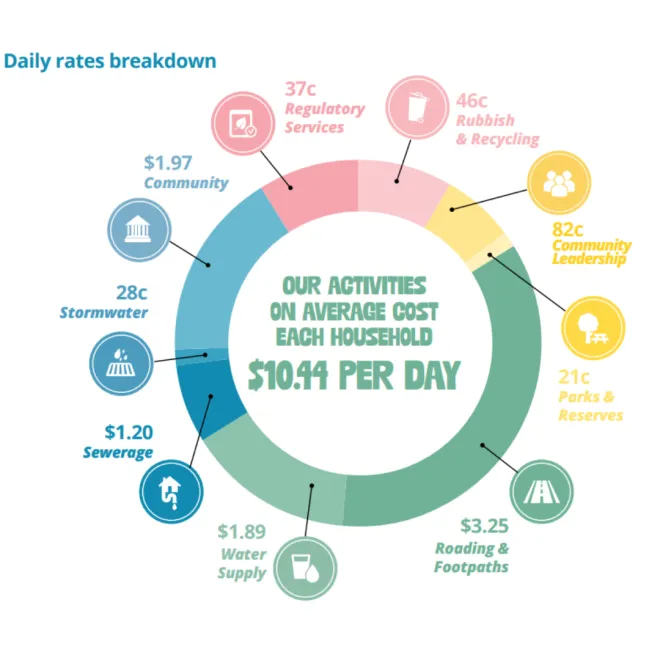Where's it @ Rangitikei - The Financials
Where do we get our money from? I ahu mai te pūtea moni i whea?
The Council is tasked with delivering a huge range of services to the community, as well as maintaining and delivering a variety of infrastructure projects.
While we have big goals to achieve and a lot of work to do to ensure Rangitīkei is a place people want to call home, we know how important it is to stick within our financial limits and ensure that what we do is affordable.
We aim to get the best value we can for everything we do, to ensure we maintain equity between our communities and between current and future generations, and maintain a strong balance sheet without too much debt.
This means trying to keep rates affordable, capping increases in our spending to a level our community can afford, and ensuring that we choose to fund the right projects at the right times.
So, where does our money come from?
The Council’s income is to fund through rates, which are referred to by many as being a form of tax where anyone who owns property in Rangitīkei pays a set amount to the Council annually.
Fees, charges, grants and subsidies are also important sources of income for the Council, and these help us to keep our rates at an affordable level. The most significant subsidy we receive is from NZ Transport Agency Waka Kotahi, which helps us to maintain our roading network. We also receive grants and funding from the Government for specific projects.
We seek external funding, wherever we can, to assist in alleviating rates burden and work to achieve our goals for our community.

What is the impact this plan has on rates?
Council is entering the Long-term Plan with a deficit budget and, accordingly, has to increase its income quicker than its costs will increase. Should Council wish to eliminate its deficit in a single year it would have to impose a rate increase of around 20% to 25% in 2024/25.
Council considers that this would be too much in a single year and has decieded to set a rates limit to eliminate the deficit budget over five years. The proposed average rates increase is listed below for the next three years:
| 2024-2025 | 2025-2026 | 2026-2027 |
|---|---|---|
| 11.50% | 8.90% | 12.4% |
For full details of the proposed average rates increases, please refer to pages 28 - 29 of the Where's it @ Rangitīkei consultation document.

